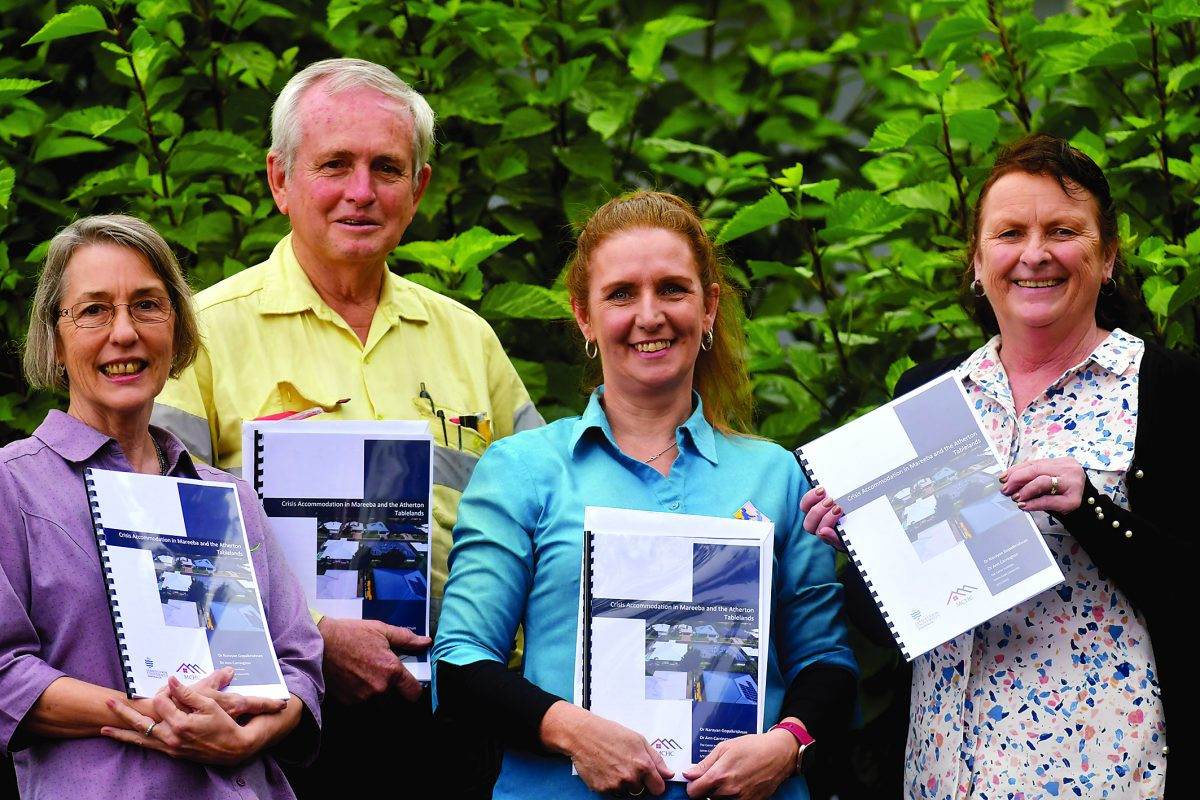General News
15 June, 2020
Research paper supports new crisis accommodation
A RESEARCH paper released by the Tablelands Interagency Group (TIG) Housing Sub Branch has identified the need for short term crisis accommodation for those in need on the Tablelands.

A RESEARCH paper released by the Tablelands Interagency Group (TIG) Housing Sub Branch has identified the need for short term crisis accommodation for those in need on the Tablelands.
TIG is a department working inside the Tablelands Regional Council and is made up of organisations like Mareeba Community Housing, Tableland Community Housing, RADCARE and Saint Vincent De Paul Society North Queensland.
TIG is a collective of community service organisations and government agencies that work together to strengthen the community and address key social issues, the Housing Sub Branch focuses specifically on homelessness and housing.
During one of their discussions it was identified that there was a lack of affordable accommodation on the Tablelands and no crisis accommodation.
Mareeba Community Housing than took the reins and contacted James Cook University to research and develop a profile of those in need of crisis accommodation on the Tablelands.
The report that followed identifies the need for short term shelter or modified boarding facility to support people in emergency situations and provide them with affordable, appropriate and accessible housing.
Tablelands Community Housing Manager Marita Romano believes that the Tablelands is in need of more affordable accommodation for those is crisis situations.
“The Tablelands is in desperate need of more accommodation and crisis accommodation is only one of the solutions to this,” she said.
“It is important for the Tablelands to secure some form of crisis accommodation for those who are leaving the hospital, escaping from domestic violence etc.
“The procurement of crisis accommodation will enable people to address their own situation with wrap-around services involved.”
Aboriginal and Torres Strait Islander people, older people, young people, recently released prisoners and domestic and family violence survivors with financial hardship were identified as being the most in need of short term crisis accommodation.
Tina Quayle, Radcare Manager is hopeful that this newly published paper will help more than just at risk individuals, but other organisations as well.
“Having a paper such as this published will be instrumental for agencies to draw from for future grant applications in the region,” she said.
“It also acts as an invaluable resource of collective information on crisis housing.”
With easier access to affordable and appropriate housing people run less risk of falling back down into the crisis areas, they can than move onto more stable and long term housing.
“These sorts of projects will help people go from a crisis situation to more long term accommodation,” said Robert Doyle from the Saint Vincent De Paul Society North Queensland.
“We have a lot of homelessness around and many of the current facilities in place are limited.”
Now after the report’s findings TIG is looking at ways to improve integration of current services and advocating to the State and Federal Governments for investment in short term sheltered accommodation.



